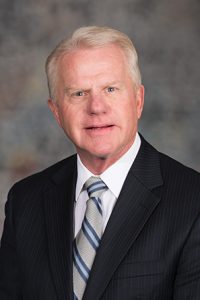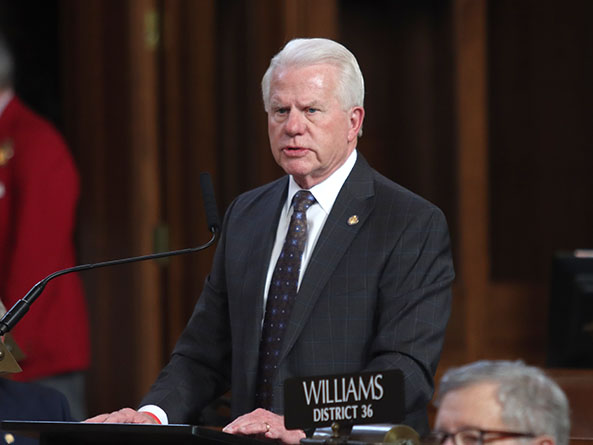Proposal to extend, increase funding for rural housing program advanced
A bill that would update an existing grant program in an effort to increase workforce housing in rural communities was advanced from general file March 28.

The Rural Workforce Housing Investment Act, passed by the Legislature in 2017, provides grants for the construction of workforce housing in counties with fewer than 100,000 people. Grants are available to nonprofit development organizations in eligible communities.
LB1069, introduced by Gothenburg Sen. Matt Williams, would extend the grant program — which had been set to expire at the end of this fiscal year — through FY2026-27. The bill also would increase the maximum allowable cost to construct an owner-occupied housing unit from $275,000 to $325,000 and for rental housing units from $200,000 to $250,000.
The current $2 million cap that a nonprofit development organization can receive would be removed and replaced by an amount set by the director of the state Department of Economic Development. Additionally, the bill would reduce the required local matching grant from a one-to-one match to 50 percent. Projects that receive funds from the National Housing Trust Fund would be ineligible for the program.
Williams said the workforce housing program has been widely successful — offering a 15-to-1 return on investment for the state. The program has resulted in construction of hundreds of houses across Nebraska, he said.
“Over the past several years, Nebraska has been battling the issue of workforce shortages,” Williams said. “It is estimated that there are over 50,000 unfilled jobs and only approximately 20,000 [individuals] seeking employment. In addition to a worker shortage, we also have a significant shortage of available workforce housing.”
North Platte Sen. Mike Jacobson spoke in support of the bill, saying the housing program is especially important for rural Nebraska. The cost to build homes can be up to 15 percent higher in rural parts of the state than in urban areas, he said.
“Rural communities are running out of housing and a lot of the [existing] housing is aging,” Jacobson said.
Sterling Sen. Julie Slama also spoke in support of the bill, saying rural areas of Nebraska are disproportionately impacted by a lack of affordable housing.
“Normally, I’m a very small-government person, but this is a very narrowly tailored program intended to target a very high need in our rural areas,” Slama said.
Sen. Steve Erdman of Bayard spoke in opposition to LB1069. He said high property taxes contribute to the state’s worker shortage and that government shouldn’t be in the business of building houses.
“We continue to do things that local investors that need to make money won’t do because there’s too much risk or not enough profit, but the government can do [them],” Erdman said. “At some point in time, we’re going to overbuild and then have a housing crash.”
Omaha Sen. Tony Vargas offered an amendment, adopted 25-3, that would allow the DED director to determine the maximum cumulative amount of grant funding that could be distributed to any single entity. He said the amendment would harmonize the state’s rural and urban workforce housing programs.
Following the 27-4 adoption of a technical Williams amendment, senators voted 30-3 to advance LB1069 to select file.


